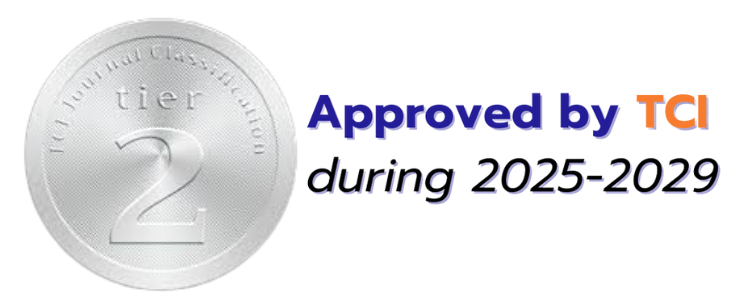Development of Seventh Grade Students’ Learning Achievement in Science through Brain-Based Learning Activities about Heat Transfer
DOI:
https://doi.org/10.56825/jehds.2025.925942Keywords:
Brain-Based Learning Activities, Learning Achievement, Heat TransferAbstract
The purposes of this research were 1) to develop brain-based learning activities for seventh grade students on the topic of heat transfer, 2) to compare students' scientific knowledge before and after learning, 3) to compare students’ basic science process skills before and after learning, and 4) to study students’ attitudes towards science. The sample, obtained by cluster random sampling, consisted of 34 seventh grade students from a classroom in a large secondary school located in Nakhon Pathom Province. The research instruments consisted of 1) 3 lesson plans for brain-based learning activities on the topic of heat transfer with a total duration of six hours, 2) a science knowledge test consisting of 20 multiple-choice items, each with four options, 3) a basic science process skill test with 20 multiple-choice items, and 4) a five-scaled questionnaire measuring attitudes toward science with 30 items. Data were collected during the second semester of the 2023 academic year. The data were analyzed using mean, percentage, standard deviation, and hypothesis testing with a dependent sample t-test. The results revealed that students’ scientific knowledge significantly increased after learning, at the .01 level of statistical significance. Their basic science process skills showed a statistically significant improvement at the .01 level. Students’ attitudes toward the science subject were found to be at a strongly agree level.
Downloads
References
Caine, R. N., & Caine, G. (2004). Brain-based learning. Funderstanding.
http://www.funderstanding.com/brain_based_learning.cfm
Chaiyamatchim, S. (2020). Development of science learning activities based on the concept of using the
brain as a base in conjunction with inquiry-based teaching (5Es) on water for life and air around us. Science learning materials group for Grade 3 students (Master’s dissertation, Sakonnakhon Rajabhat University). [translated]
Chuprabhawan, J. (2005). Who are thinking their Thai children is stupid. Amarin Printing Publishing House. [translated]
Inci, N., & Erien, H. (2010). The effect of brain-based learning on academic success,
attitude and retrieval of information in science and technology classes . http://www.esera.org/media/ebook/strand3/ebook-esera2011—NC—03.pdf
Institutions of Learning. (2005). Brain-based learning curriculum primary education. Institutions of Learning. [translated]
Lertvicha, P. (2007). How the brain learns. Sala Daeng. [translated]
Lertvicha, P., & Jaruphakorn, A. (2007). Design the learning process by understanding the brain.
Darnsutha Press. [translated]
Mala, S., Thongnoi, C., & Saeheng, P. (2017). Comparison of academic achievement, process skills,
science, and attitude toward the study of science subjects of students in Grade 6 using structured project-based learning with problem-based learning. Journal of Educational Measurement Mahasarakham University, 23(Suppl.), 280–290. [Translated]
Ministry of Education. (2009). Basic Education Core Curriculum 2008. Office of the Basic Education
Commission. Agricultural Cooperative Federation Printing House of Thailand. [translated]
Moonkham, S. (2006). Writing a thinking-oriented learning management lesson. Chulalongkorn University. [translated]
Office of Knowledge Management and Development. (2015). Science learning management:
Guidelines for learning management based on BBL principles in high school (9–12 years old). Office of Knowledge Management and Development. [translated]
Sangwandee, S. (2013). Development of a brain-based science teaching and learning model for Grade
on academic achievement, creativity and emotional intelligence (Master’s dissertation, Mahasarakham University). [translated]
Taweerat, P. (2000). Research methods in behavioral science and social sciences (8th ed.). Educational and Psychological Test Bureau, Srinakharinwirot University. [translated]
Udomratti, V., & Thanasettakorn, P. (2018). Brain skills development guide EF executive functions in
children aged 7–12 years. Rakluke Group. [translated]
Downloads
Published
Issue
Section
License
Copyright (c) 2025 วารสารศาสตร์การศึกษาและการพัฒนามนุษย์

This work is licensed under a Creative Commons Attribution-NonCommercial-NoDerivatives 4.0 International License.







